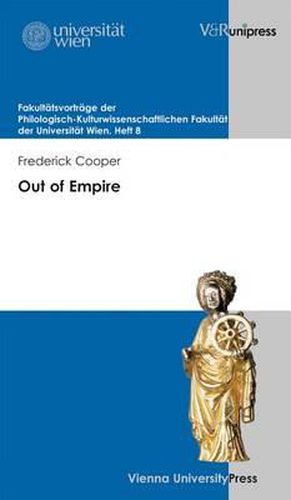Readings Newsletter
Become a Readings Member to make your shopping experience even easier.
Sign in or sign up for free!
You’re not far away from qualifying for FREE standard shipping within Australia
You’ve qualified for FREE standard shipping within Australia
The cart is loading…






The history of decolonization is usually written backward, as if the end-point (a world of juridically equivalent nation-states) was known from the start and the only question was the obstacles to be overcome in order to get there. But if we ask how leaders in France, Britain, and their African colonies saw the political possibilities at the end of World War II, the routes out of colonial empire appear more varied. Some Africans sought equal rights within empire, others to federate among themselves; some sought independence. In London or Paris, officials realized they had to reform colonial empires, but not necessarily give them up. The idea of odevelopmento became a way to assert that empire could be made both more productive and more legitimate. Frederick Cooper explores how these alternative possibilities narrowed between 1945 and approximately 1960. The idea that polities were composite gave way to the fiction of a world of juridically equivalent nation-states. Some African leaders predicted that a world so divided might perpetuate rather than eliminate the powerlessness and poverty against which they were mobilizing.
$9.00 standard shipping within Australia
FREE standard shipping within Australia for orders over $100.00
Express & International shipping calculated at checkout
The history of decolonization is usually written backward, as if the end-point (a world of juridically equivalent nation-states) was known from the start and the only question was the obstacles to be overcome in order to get there. But if we ask how leaders in France, Britain, and their African colonies saw the political possibilities at the end of World War II, the routes out of colonial empire appear more varied. Some Africans sought equal rights within empire, others to federate among themselves; some sought independence. In London or Paris, officials realized they had to reform colonial empires, but not necessarily give them up. The idea of odevelopmento became a way to assert that empire could be made both more productive and more legitimate. Frederick Cooper explores how these alternative possibilities narrowed between 1945 and approximately 1960. The idea that polities were composite gave way to the fiction of a world of juridically equivalent nation-states. Some African leaders predicted that a world so divided might perpetuate rather than eliminate the powerlessness and poverty against which they were mobilizing.